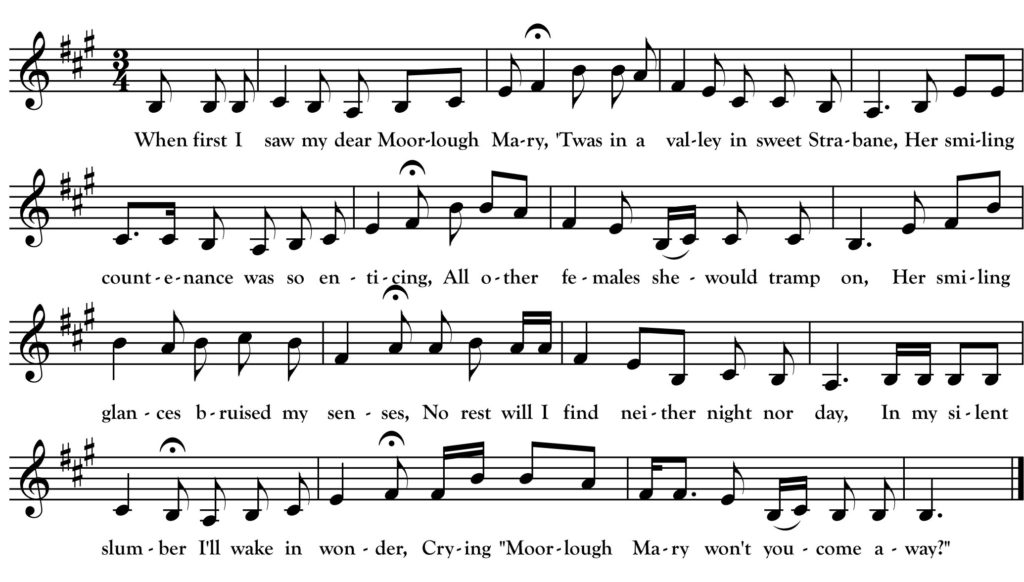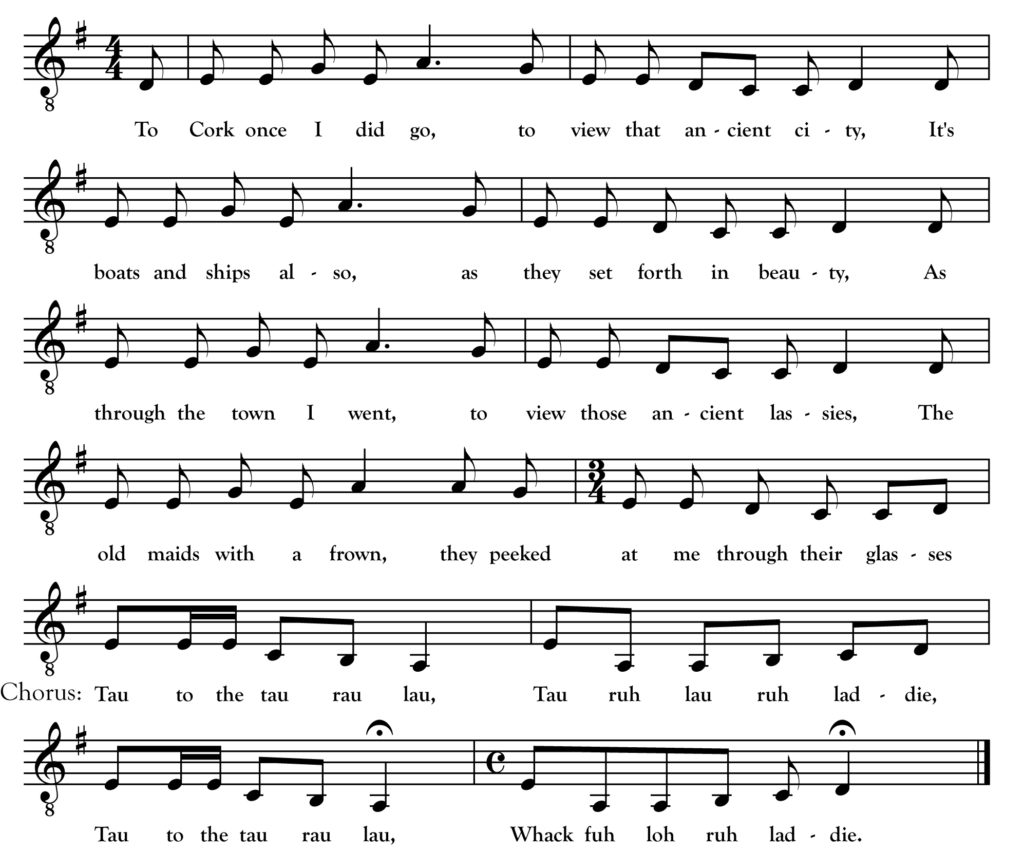Lather and Shave

It was down in the city not far from this spot,
Where a barber he set up a snug little shop,
He was silent and sad, but his smile was so sweet,
That he pulled everybody right in from the street.
One horrid bad custom he thought he would stop,
That no one for credit should come to his shop,
So he got him a razor full of notches and rust,
To shave the poor mortals who came there for trust.
Some time after that, Pat was passing that way,
His beard had been growing for many a day,
He looked at the barber and set down his hod,
“Will you trust me a shave for the true love of God?”
“Walk in,” says the barber, “Sit down in that chair,
And I’ll soon mow your beard off right down to a hair.”
The lather he splattered on Paddy’s big chin,
And with his “trust” razor to shave did begin.
“Ach murder!” says Paddy, “Now what are you doin?
Leave off with your tricks or my jaws you will ruin,
By the powers, you will pull every tooth in my jaw,
By jeepers, I’d rather be shaved with a saw.”
“Keep still,” says the barber, “don’t make such a din.
Quit working your jaw or I’ll cut your big chin.”
“It’s not cut, but it’s saw with that razor you’ve got,
For it wouldn’t cut butter unless it was hot.”
“Let up now,” says Paddy, “Don’t shave anymore,”
And the Irishman bolted right straight for the door,
“You can lather and shave all your friends ‘til you’re sick,
But by jeepers, I’d rather be shaved with a brick.”
Not many days later as Pat passed that door,
A jackass he set up a terrible roar,
“Now look at the barber! You may know he’s a knave,
He’s giving some devil a ‘love of God’ shave.”
We have a song this month in honor of everyone whose “pandemic beard” needs a trim! “Lather and Shave” (aka “The Irish Barber” or “The Love of God Shave”) seems to have originated in the early 19th century as a broadside ballad in England. From there it travelled to Ireland and North America where it was sung on the stage and by traditional singers in many regions including the Upper Midwest.
The above text is my own blend of two Midwestern versions: one from Bernadine Christensen of Harlan, Iowa collected by Earl J. Stout and another from Charles C. Talbot of Forbes, North Dakota collected by Franz Rickaby and printed in the collection “Folk Songs Out of Wisconsin.” My melody and chorus come from a third source: Angus “The Ridge” MacDonald of Antigonish County, Nova Scotia as recorded by MacEdward Leach (click to listen online).


